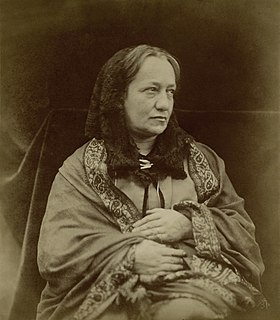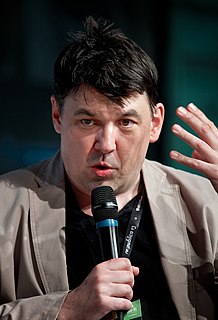A Quote by Paulo Coelho
That 'simple desire' to share something meant that we could enter the world of language without words, where everything is always clear and there is no danger of being misinterpreted.
Related Quotes
Elric knew that everything that existed had its opposite. In danger he might find peace. And yet, of course, in peace there was danger. Being an imperfect creature in an imperfect world he would always know paradox. And that was why in paradox there was always a kind of truth. That was why philosophers and soothsayers flourished. In a perfect world there would be no place for them. In an imperfect world the mysteries were always without solution and that was why there was always a great choice of solutions.
How it is that animals understand things I do not know, but it is certain that they do understand. Perhaps there is a language which is not made of words and everything in the world understands it. Perhaps there is a soul hidden in everything and it can always speak, without even making a sound, to another soul.
In a world full of danger, to be a potentially seeable object is to be constantly exposed to danger. Self-consciousness, then, may be the apprehensive awareness of oneself as potentially exposed to danger by the simple fact of being visible to others. The obvious defence against such a danger is to make oneself invisible in one way or another.
I wish I could take language And fold it like cool, moist rags. I would lay words on your forehead. I would wrap words on your wrists. 'There, there,' my words would say - Or something better. I would ask them to murmur, 'Hush' and 'Shh, shhh, it's all right.' I would ask them to hold you all night. I wish I could take language And daub and soothe and cool Where fever blisters and burns, Where fever turns yourself against you. I wish I could take language And heal the words that were the wounds You have no names for.
I don't think there is any scientific evidence about the question of whether we think only in language or not. But introspection indicates pretty clearly that we don't think in language necessarily. We also think in visual images, we think in terms of situations and events, and so on, and many times we can't even express in words what the content of our thinking is. And even if we are able to express it in words, it is a common experience to say something and then to recognize that it is not what we meant, that it is something else.
Whenever actors tout off about doing their own stunts, it's always ... they're so protective of you that I always know these stunt guys are so good [and] they're never going to put you in danger. But it's fun to do something kind of exciting, even something as simple as driving 70 through a tunnel with five motorcycles ... it sounds simple, but it's actually really nerve-wracking.





































